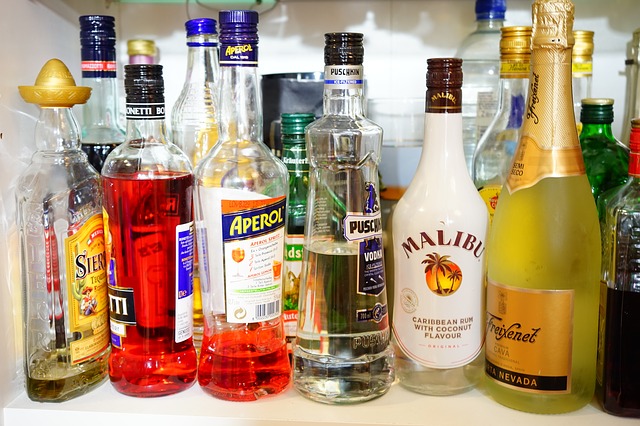Is One Worse Than the Other?: Alcohol vs. Marijuana Violations on Campus
The Student Advocacy Center at American University concisely defines the punishments and consequences of drug and alcohol possession at the college. What’s interesting, however, is the difference in punishment between and alcohol or a drug violation.
Say a student, let’s name her Sarah, enters American University as a pure and innocent freshman and has had no prior contact with marijuana or alcohol. Sarah is interested in exploring the different aspects of college; community service, club sports, volunteer organizations, social scenes, etc. She may even be curious what the effects of marijuana and alcohol will be on her mind. But, she is responsible and values her education; responsibly, she reads up on American’s Student Code of Conduct (which is not available on the AU Student Portal). After finding a handy guide from the Student Advocacy Center and having conversations with some approachable RAs, Sarah decides that between marijuana and alcohol, the latter is given a lot more leeway. Let’s discuss why.
Alcohol violations:
If a student is found to be in possession of alcohol on campus for the first time, he/she will most likely have to 1) write an essay on the choices made/why drinking underage is bad, 2) attend a class on alcohol education along and 3) have a censure added to his/her disciplinary file. There is no parent notification or disciplinary probation. For two-time offenders, parents will be notified, and the student will be placed on disciplinary probation. This means the student cannot get in “trouble” like violating any policies, even something as minute as a noise complaint. The probation lasts for a semester and if broken, the student will be removed from campus and potentially suspended.
So, going back to our girl Sarah. If Sarah happened to drink a little too much of that “jungle juice” at the frat on Friday night and started vomiting and ended up getting transported, she would only get a parent notification and quite a large hospital bill. Sure, she’d have to meet with some adults to talk about what happened, but she wouldn’t have to worry about any probation or all that.
Not too bad, right? Now let’s talk pot.
Marijuana violations:
In most situations, individuals are dealt with on a case-by-case basis. The University sets a clear distinction between being in the “presence” and “possession” of marijuana; “presence” means an individual is simply in the room or area where marijuana is located, nothing handled or inhaled and “possession” means the marijuana was ingested, in contact with, or purchased.
The punishment for first-time marijuana users in the presence of marijuana or any paraphernalia is 1) a required paper assignment on the effect of the drug and 2) a censure added to the person’s disciplinary record. For first time offenders of marijuana possession, the penalties include an entire semester of disciplinary probation, a marijuana education class, parental notification, a paper, and a meeting with a health educator. If a student is caught with the possession of marijuana for a second time they will be removed from campus. The only way parents are not notified in marijuana-related-incidents is if the individual at fault is over the age of 21.
Getting back to Sarah, let’s say she was interested to see what marijuana was like, and she goes to hang out with some people that associate with the drug. Let’s make it a little bit more exciting: Sarah is in these new friends’ rooms and weed could be out on the table. The RA comes in because of a smell of the drug. (It was some pretty strong weed).
But, even if Sarah didn’t put a finger on that nugget of marijuana, she would be found guilty of being in the presence of marijuana. And, if Sarah happened to be in the room twice with her new friends when they had their weed out, she could be placed on probation and have her parents notified.
Sarah has a strong feeling that she’s going to stick with the vodka and beer. Much less risky.












